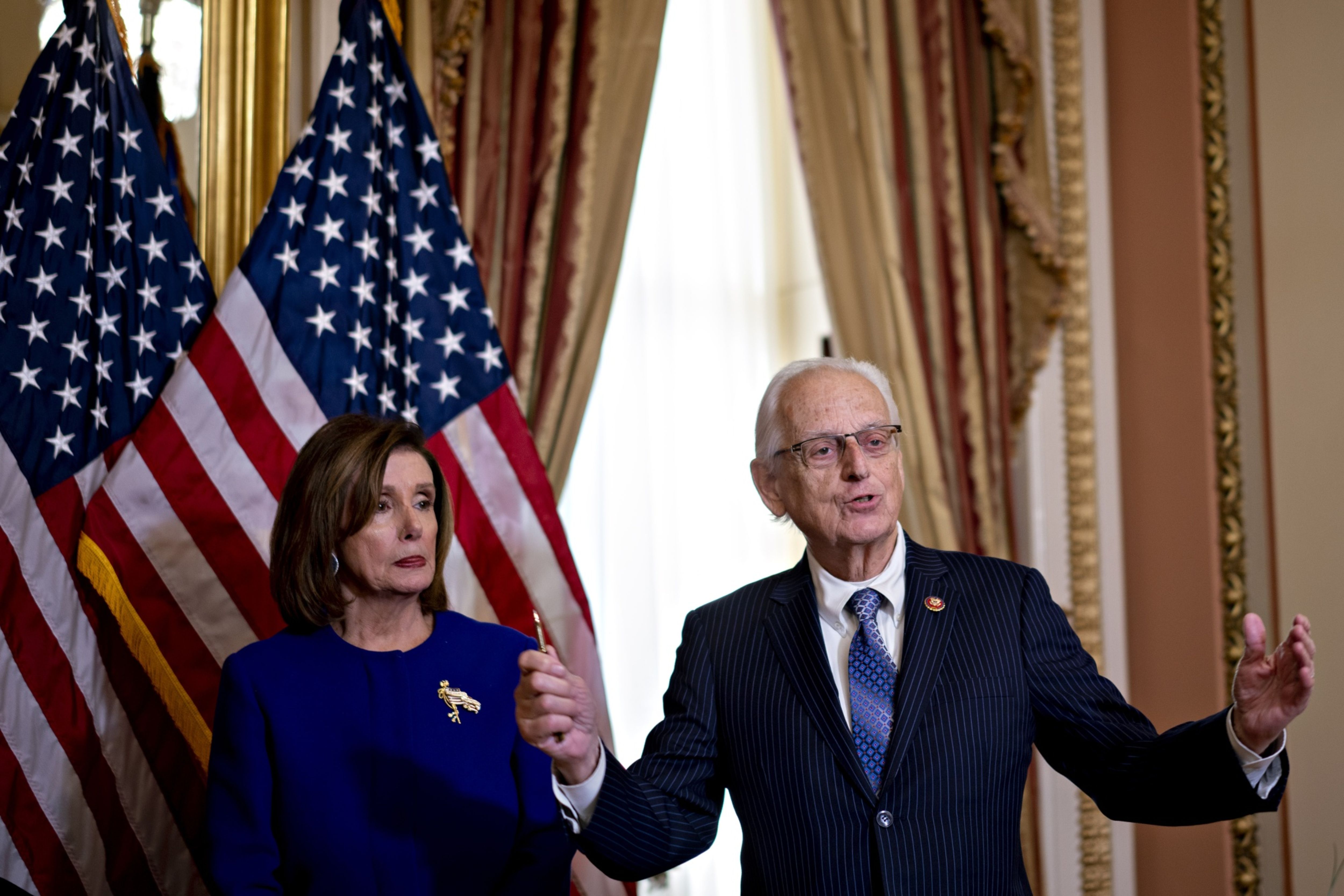Three House Democrats are pushing legislation that would repeal the carried-interest tax break used by fund managers to reduce the levies they owe to the Internal Revenue Service.
The bill would close the carried-interest tax break and require many hedge-fund and private-equity managers to pay higher ordinary income-tax rates, rather than the lower rates on capital gains. Representatives Bill Pascrell of New Jersey, Andy Levin of Michigan and Katie Porter of California are sponsoring the legislation, which could become part of broader talks on taxes in Congress in the coming months.
“The ability of private-equity and hedge-fund financiers to use the loophole impacts income inequality, as this tiny subset of executives make up some of the wealthiest citizens in the world,” the lawmakers said in a statement on Tuesday.

The legislation would mean that investment fund managers could pay significantly higher tax rates, because they wouldn’t be able to classify some of their income, called carried interest, as capital-gains earnings. Ordinary tax rates max out at 37 percent and long-term capital gains rates are 20 percent, plus an additional 3.8 percent surcharge to fund the Affordable Care Act.
Carried interest is the portion of an investment fund’s returns that are paid to hedge-fund and private-equity managers, venture capitalists and certain real-estate investors eligible for lower tax rates.
Own money
Money managers who put their own money at risk, such as private-equity partners who invest money in their funds, could still qualify for the break under the House bill. However, all the income earned from managing a firm’s assets would be taxed at ordinary rates, according to the lawmakers.
President Joe Biden hasn’t specifically proposed repealing the carried-interest tax break, but he has suggested a more comprehensive Tax Code change. He has said he wants to end preferential long-term capital gains rates for people earning $1 million or more, and instead tax that income at the top income rate, which he has proposed to increase to 39.6 percent. If Congress were to approve that plan, high-income hedge-fund managers would largely lose the ability to use the carried-interest provision to lower their tax bills.
Democrats have for years proposed legislation that would end the carried-interest tax break. But those efforts have largely been symbolic, because the Democratic-led House couldn’t get the Republican majority in the Senate on board.
The 2017 Republican tax law kept the carried interest tax break intact but requires that investors hold their investments for longer to get the benefit.
“The 2017 tax law made sure that investors only realize long-term capital gains carried interest after investing in a company for over three years,” Drew Maloney, head of the American Investment Council, said in a statement. “As workers and local economies continue to struggle during this pandemic, this would be the worst time for Washington to reverse this responsible policy and punish long-term investment that creates jobs and builds businesses.”
Carried interest repeal becomes more likely as Democrats — now in control of Congress, though by thin margins — are looking for ways to raise money to pay for an ambitious infrastructure agenda. The carried-interest break is relatively small for a tax expenditure, costing about $14 billion over a decade.